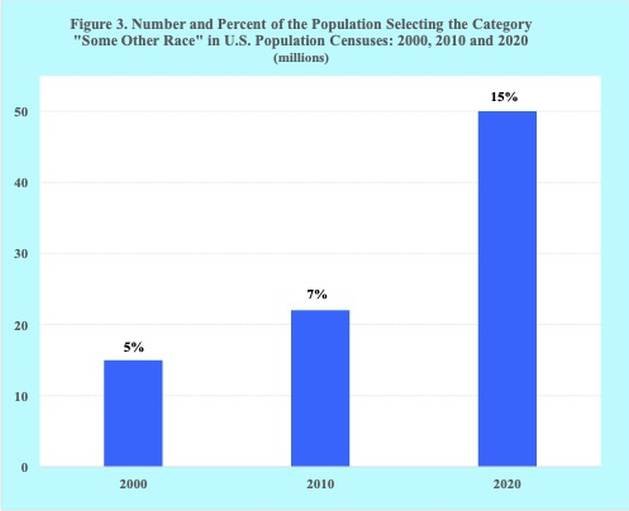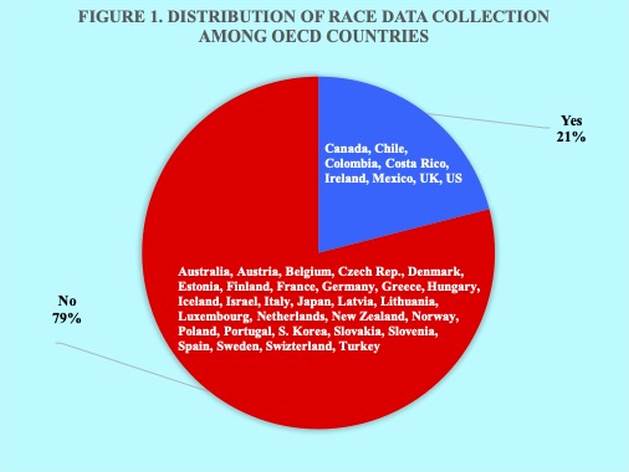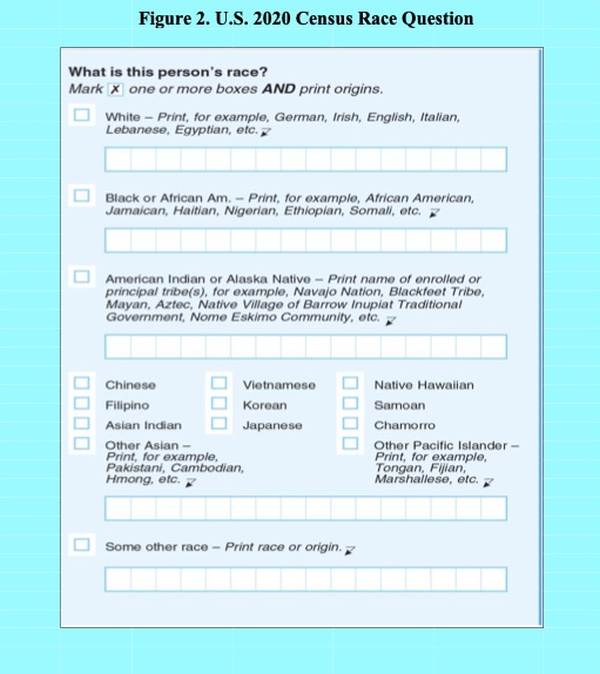
[ad_1]

PORTLAND, USA, Jul 17 (IPS) – With preparations for America’s 2030 population census underway and the Census Bureau encouraging further public input, it’s time to significantly consider the continued inclusion of the race query within the U.S. inhabitants census.
Not solely is the census race query confusing, an arbitrary classification of unscientific distinctions and conceptually problematic, the persevering with assortment of race knowledge within the decennial census is divisive, alienating and inconsistent with America’s motto “e pluribus unum”, out of many, one.
The gathering of inhabitants race knowledge is a controversial matter. Some nations, businesses and organizations, together with the UN Council for Human Rights, contend that the gathering and compilation of race knowledge are crucial to make sure equality, handle systemic racism and information acceptable public coverage selections. They consider that governments ought to gather and make publicly accessible complete demographic knowledge disaggregated by race.
Others, nevertheless, preserve that the gathering of race knowledge is estranging, promotes opposed stereotypes and contributes to the institution of discretionary social variations. Additionally they concern that the gathering and compilation of inhabitants race knowledge could also be utilized by authorities authorities and others to learn or sanction sure teams. Furthermore, they observe that regardless of spiritual discrimination within the U.S., the decennial inhabitants census doesn’t have a query on religious affiliation.
The large majority of OECD nations, together with France, Germany, Italy and Japan, don’t gather knowledge on the racial identification of their inhabitants. Solely a couple of fifth of the 38 OECD nations, together with Canada, the UK and the USA, gather racial knowledge on their respective populations (Determine 1).

In some nations, comparable to France, the gathering of information on race is taken into account divisive and accordingly governments keep away from contemplating their residents in racial classes. Additionally, in lots of European countries in addition to elsewhere, the gathering of race knowledge stays a extremely sensitive matter given the current historical past of authorities utilizing demographic knowledge to harass, oppress, persecute and even exterminate sure teams of individuals.
In the USA, past the fundamental enumeration of its inhabitants required by the U.S. Constitution for figuring out illustration in Congress, the questions included in its decennial census is principally a political matter. Subjects to be included or excluded in America’s inhabitants census are sometimes in response to politics and political lobbying.
Questions on age and place of residence sometimes increase few objections. In distinction, the gathering of different data, comparable to spiritual affiliation, citizenship, sexual orientation, gender identification, ethnicity, political affiliation and immigration status, are sometimes contentious and some usually are not included within the census.
Because the first U.S. census in 1790, when some knowledge on race in addition to classes differentiating between free white individuals, different free individuals and enslaved individuals have been collected, the federal government has modified its definitions of racial categories greater than 10 times. Additionally, in lots of past censuses, people who have been each white and one other race, irrespective of how small the share, have been counted because the nonwhite race, largely on the idea of the one drop rule.
The U.S. Census Bureau at the moment collects race knowledge in accordance with the 1997 Standards for Sustaining, Gathering, and Presenting Federal Knowledge on Race and Ethnicity directed by the U.S. Workplace of Administration and Funds (OMB). Primarily based largely on continent or nation of origin, OMB’s minimal 5 categories for knowledge on race are: American Indian or Alaska Native, Asian, Black or African American, Native Hawaiian or Different Pacific Islander, and White.
Starting within the 1960 census, race was not decided by the selections of census enumerators however relied on the person’s interpretation to pick the suitable racial class. As well as, the self-reporting of a couple of race started with the 2000 census.
The Census Bureau defines race as an individual’s self-identification with a number of social teams. The Bureau repeatedly stresses that the racial categories within the census questionnaire typically replicate a social definition of race acknowledged within the nation and never an try to outline race biologically, anthropologically or genetically.
Anybody who has stuffed out a current decennial U.S. census questionnaire is confronted with the query of race. There are lots of people who don’t understand how finest to reply that query as a result of it doesn’t match the best way they perceive race.
With the selection of a number of “racial classes” within the current 2020 census, a person might choose White, Black or African American, American Indian or Alaska Native, almost a dozen Asian or Pacific Island nations in addition to the ever present “Some Other Race” class, with nationwide or ethnic origins to be specified within the write-in areas (Determine 2).

The U.S. census race query has been met with dissatisfaction and frustration amongst some teams and individuals. Along with the restricted decisions, the census race classes are increasingly failing to replicate how individuals see themselves, are out of step with the fact of their private experiences and are sometimes confused with individuals’s ethnic identity, particularly Hispanic.
Within the 2020 census, near 50 million U.S. residents, or roughly 15 % of the nation’s inhabitants, checked a field for “Some Different Race” within the query on race. The proportion of the U.S. inhabitants selecting the class “Some Different Race” in 2020 is double the share from a decade earlier and triple the share from 20 years earlier (Determine 3).

Among the many proposed reforms being thought of to the race query for the 2030 census is the inclusion of a brand new checkbox for “Center Japanese or North African” (MENA). Underneath the present requirements set by the Workplace of Administration and Funds, People with roots within the Center East or North Africa are considered white.
Advocates for Arab People and different MENA teams have lengthy campaigned for their very own checkbox within the race query. Primarily based on their day by day life experiences, many people of MENA descent don’t establish as white individuals.
Moreover the addition of a brand new checkbox to the census racial query, the proposed reform to the race query would change the federal government’s definition of “White” as it will not embody individuals with MENA origins. Consequently, the change might decrease the proportion of people that establish as white among the many U.S, inhabitants, which has turn out to be a salient part of American politics, particularly among the many political right.
Households throughout America have gotten extra racially diverse. A part of the rise is the results of the rising diversity of the U.S. inhabitants because of immigration and growing intermarriage amongst America’s racial and ethnic teams.
Since 2010, the number of individuals within the U.S. who establish themselves as multiracial has modified considerably. From 9 million individuals in 2010, the quantity elevated to 33.8 million individuals in 2020 and now represents about 10 percent of the U.S. inhabitants.
Race in America stays a problematic concept, an arbitrary classification of unscientific distinctions and an incoherent stereotype in addition to being troublesome to outline objectively and unambiguously. Additionally, since 1960 the U.S. Census Bureau has relied on self-identification by the person to find out an individual’s race.
In sum, the inhabitants census race query shouldn’t be required to find out Congressional illustration and, very importantly, the race query is contributing to the entrenchment of spurious divisions throughout the nation which are pointless, complicated and inimical to the inherent ideas of the nation. Accordingly, severe consideration must be given to evaluating the inclusion of the race query in America’s 2030 inhabitants census.
Joseph Chamie is an unbiased consulting demographer, a former director of the United Nations Inhabitants Division and creator of quite a few publications on inhabitants points, together with his current guide, “Births, Deaths, Migrations and Different Vital Inhabitants Issues.”
© Inter Press Service (2023) — All Rights ReservedOriginal source: Inter Press Service
[ad_2]